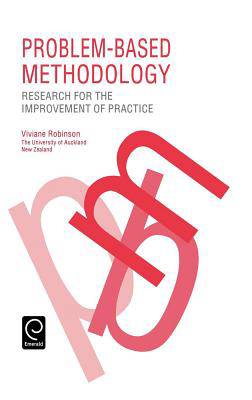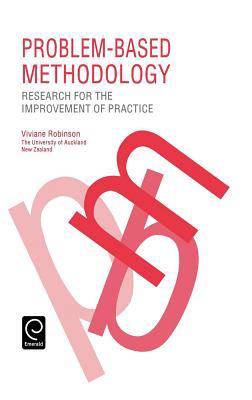
Door een staking bij bpost kan je online bestelling op dit moment iets langer onderweg zijn dan voorzien. Dringend iets nodig? Onze winkels ontvangen jou met open armen!
- Afhalen na 1 uur in een winkel met voorraad
- Gratis thuislevering in België vanaf € 30
- Ruim aanbod met 7 miljoen producten
Door een staking bij bpost kan je online bestelling op dit moment iets langer onderweg zijn dan voorzien. Dringend iets nodig? Onze winkels ontvangen jou met open armen!
- Afhalen na 1 uur in een winkel met voorraad
- Gratis thuislevering in België vanaf € 30
- Ruim aanbod met 7 miljoen producten
Zoeken
Problem Based Methodology
Research for the Improvement of Practice
Viviane M J Robinson
Hardcover | Engels
€ 236,95
+ 473 punten
Omschrijving
How can educational research make a greater impact on educational practice? "Problem-Based Methodology: Research for the Improvement of Practice" explains why educational research has contributed so little to the understanding and resolution of educational problems, and how, with a different methodology, its contribution could be significantly greater. The book offers an alternative problem-based methodology (PBM) which is better matched than either empiricist, critical or interpretive approaches to the generic features of educational problems, to the way practitioners seek to resolve those problems, and to the normative requirements of any practical activity. In addition, PBM incorporates a politics of inquiry which shows how researchers and practitioners can reach warranted agreements about the nature of problems and solutions, through dialogue that is simultaneously critical and collaborative. Two original school-based studies illustrate this new approach to educational and social research.
Specificaties
Betrokkenen
- Auteur(s):
- Uitgeverij:
Inhoud
- Aantal bladzijden:
- 292
- Taal:
- Engels
Eigenschappen
- Productcode (EAN):
- 9780080419251
- Verschijningsdatum:
- 19/03/1993
- Uitvoering:
- Hardcover
- Formaat:
- Genaaid
- Afmetingen:
- 156 mm x 234 mm
- Gewicht:
- 585 g

Alleen bij Standaard Boekhandel
+ 473 punten op je klantenkaart van Standaard Boekhandel
Beoordelingen
We publiceren alleen reviews die voldoen aan de voorwaarden voor reviews. Bekijk onze voorwaarden voor reviews.











